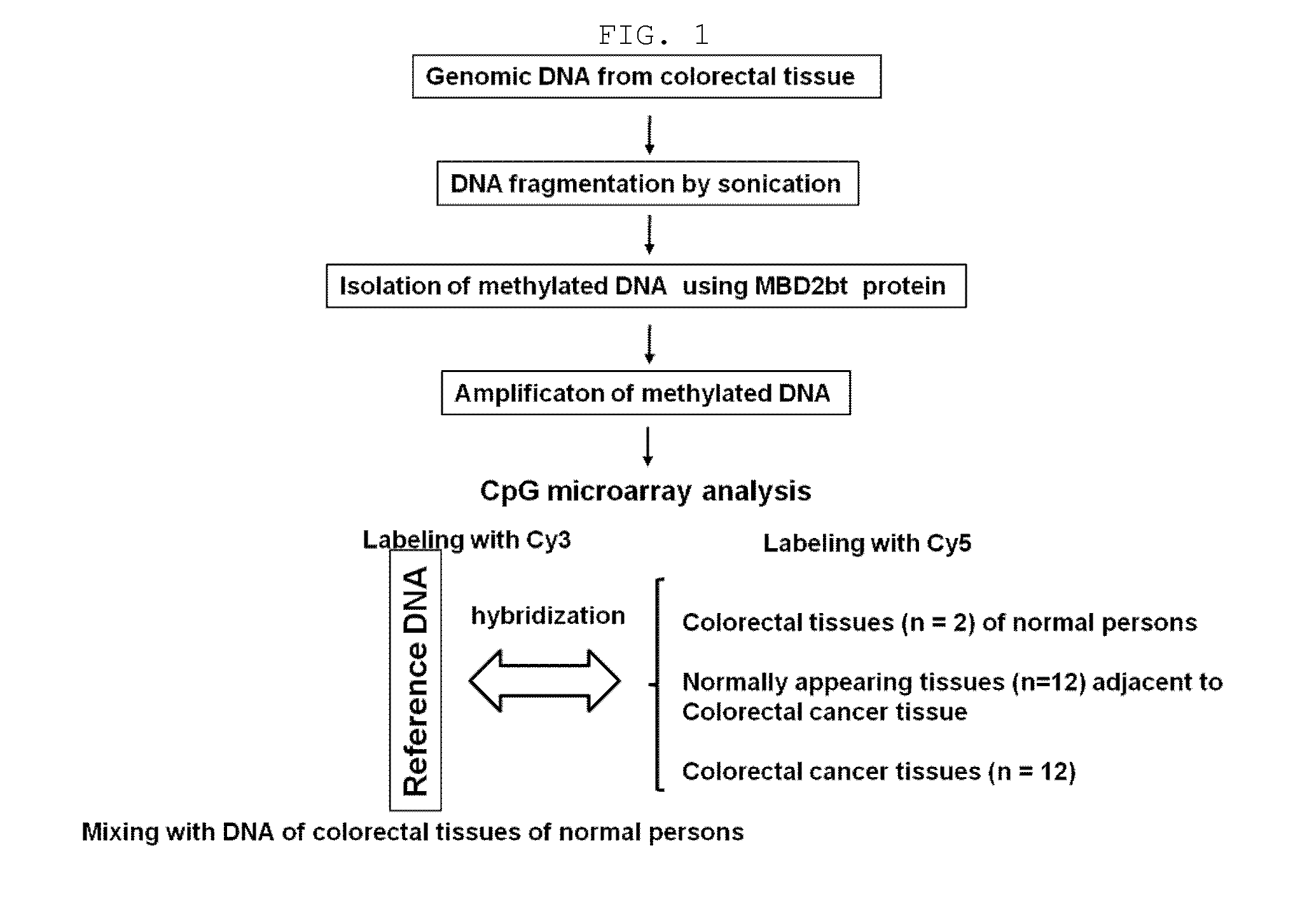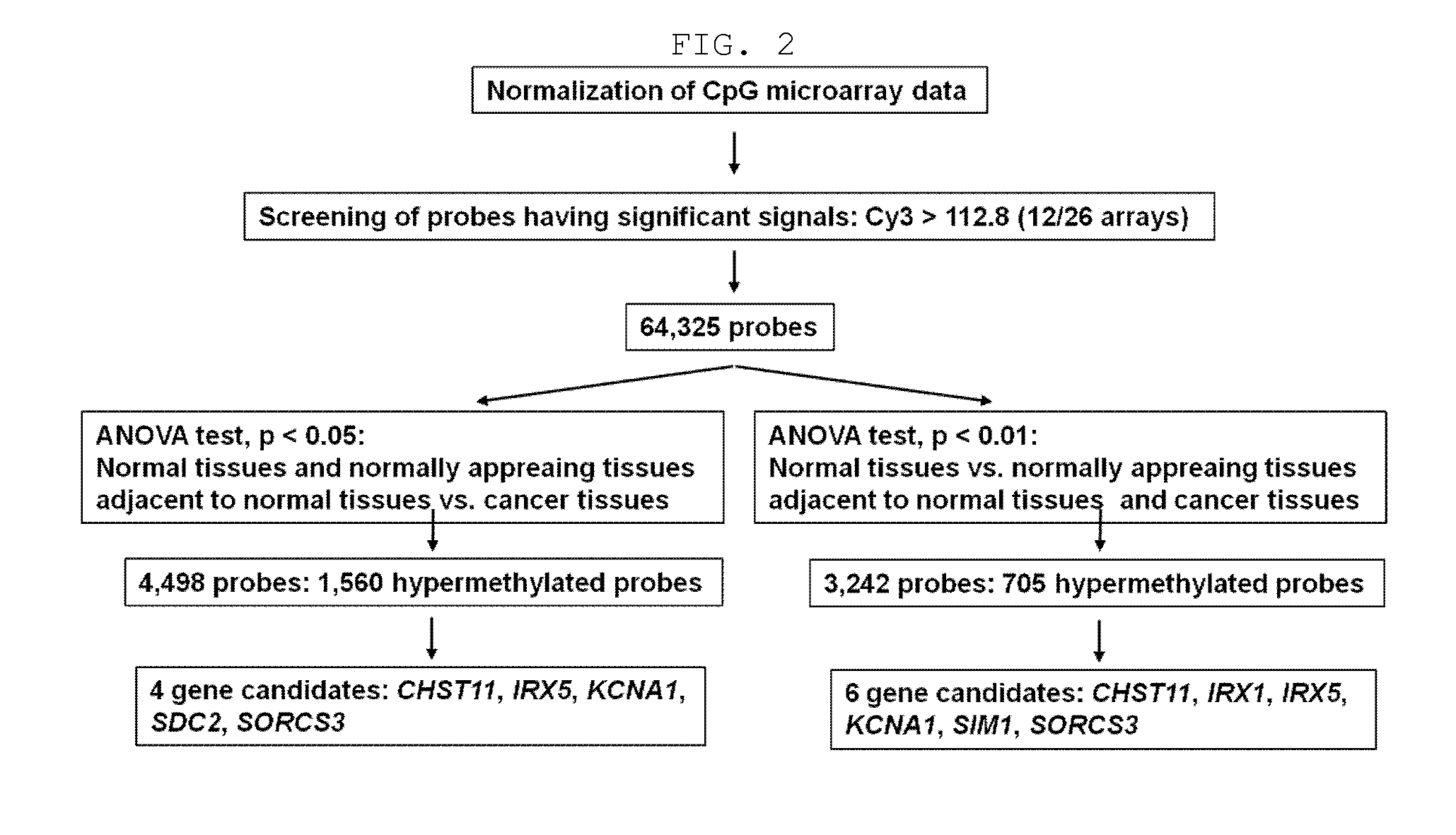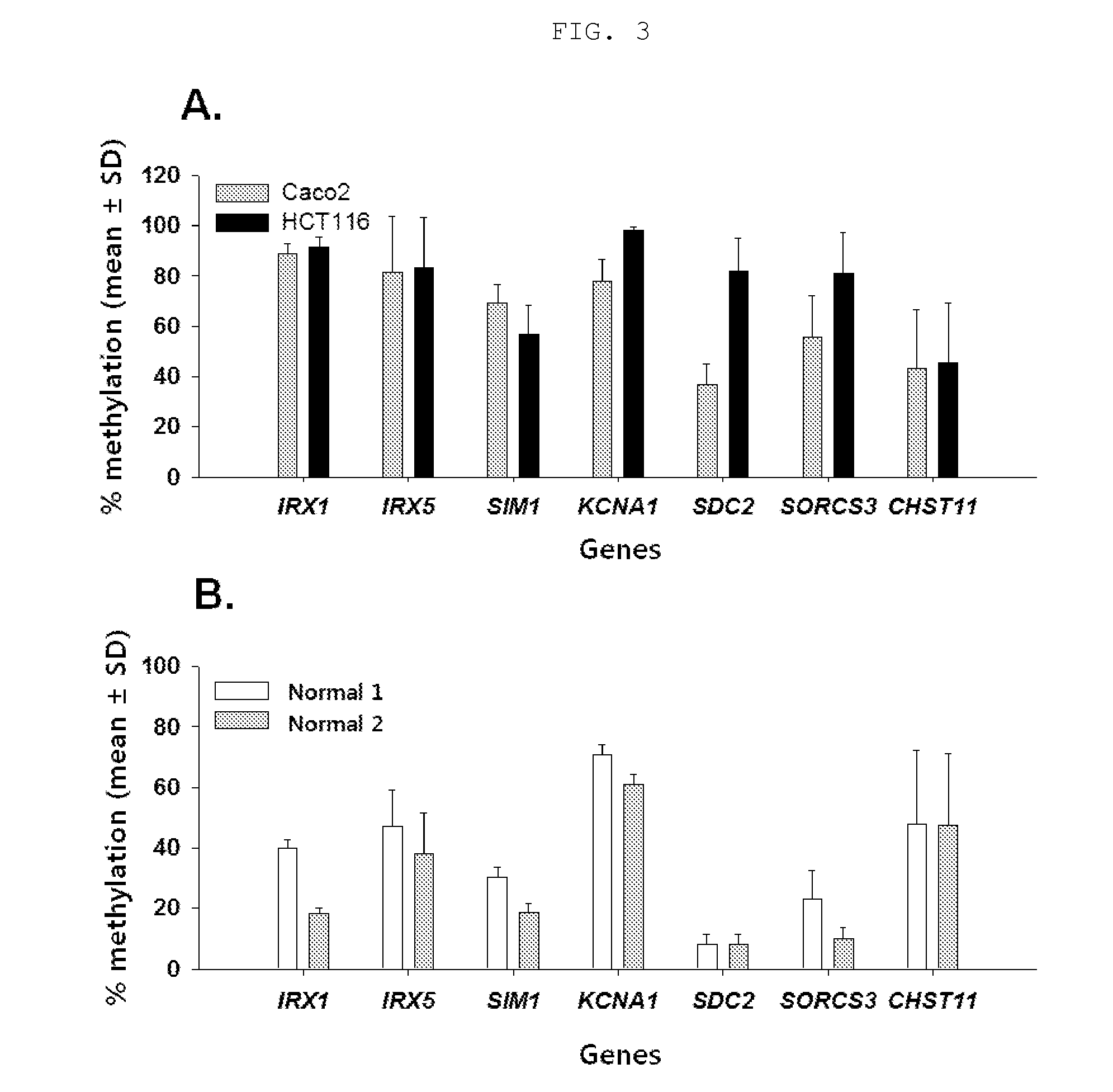Method for detecting the methylation of colorectal-cancer-specific methylation marker genes for colorectal cancer diagnosis
a colorectal cancer and cancer-specific technology, applied in the field of colorectal cancer diagnosis specific methylation marker genes, can solve the problems of poor results in cancer therapy, limited accuracy, and high complexity of cancer cells, and achieve the effect of effective diagnosis
- Summary
- Abstract
- Description
- Claims
- Application Information
AI Technical Summary
Benefits of technology
Problems solved by technology
Method used
Image
Examples
example 1
Discovery of Colorectal Cancer-Specific Methylated Genes
[0167]In order to screen biomarkers which are methylated specifically in colorectal cancer, 500 ng of each of genomic DNAs from 2 normal persons and genomic DNAs from the cancer tissue and adjacent normal tissue from 12 colorectal cancer patients was sonicated (Vibra Cell, SONICS), thus constructing about 200300-bp-genomic DNA fragments.
[0168]To obtain only methylated DNA from the genomic DNA, a methyl binding domain (Methyl binding domain; MBD) (Fraga et al., Nucleic Acid Res., 31: 1765, 2003) known to bind to methylated DNA was used. Specifically, 2 μg of 6×His-tagged MBD2bt was pre-incubated with 500 ng of the genomic DNA of E. coli JM110 (No. 2638, Biological Resource Center, Korea Research Institute of Bioscience & Biotechnology), and then bound to Ni-NTA magnetic beads (Qiagen, USA). 500 ng of each of the sonicated genomic DNAs isolated from the normal persons and the colorectal patient patients was allowed to react with ...
example 2
Measurement of Methylation of Biomarker Genes in Cancer Cell Lines
[0172]In order to additionally confirm the methylation state of the biomarker candidate genes selected in Example 1, pyrosequencing for the promoter and intron region of each gene was performed.
[0173]In order to modify unmethylated cytosine to uracil using bisulfite, total genomic DNA was isolated from each of the colorectal cancer cell lines Caco-2 (KCLB No. 30037.1) and HCT116 (KCLB No. 10247), and 200 ng of the genomic DNA was treated with bisulfite using the EZ DNA methylation-gold kit (Zymo Research, USA). When the DNA was treated with bisulfite, unmethylated cytosine was modified to uracil, and the methylated cytosine remained without changes. The DNA treated with bisulfite was eluted in 20 μl of sterile distilled water and subjected to pyrosequencing.
[0174]PCR and sequencing primers for performing pyrosequencing for the 7 genes were designed using PSQ assay design program (Biotage, USA). The PCR and sequencing ...
example 3
Measurement of Methylation of Biomarker Candidate Genes in Colorectal Tissue of Normal Persons
[0178]In order for the 7 biomarker candidate gene to have utility as biomarkers for colorectal cancer diagnosis, these genes should show low levels of methylation in the colorectal tissue of normal persons other than patients, but should show high levels of methylation in colorectal cancer tissue.
[0179]To verify whether these genes satisfy these requirements, genomic DNA was isolated from two normal person's colorectal tissues (Biochain) using the QIAamp DNA mini-kit (QIAGEN, USA), and 200 ng of the isolated genomic DNA was treated with bisulfite using the EZ DNA methylation-gold kit (Zymo Research, USA). The treated DNA was eluted in 20 μl of sterile distilled water and subjected to pyrosequencing.
[0180]20 ng of the genomic DNA treated with bisulfite was amplified by PCR. In the PCR amplification, a PCR reaction solution (20 ng of the genomic DNA treated with bisulfite, 5 μl of 10×PCR buff...
PUM
 Login to View More
Login to View More Abstract
Description
Claims
Application Information
 Login to View More
Login to View More - R&D
- Intellectual Property
- Life Sciences
- Materials
- Tech Scout
- Unparalleled Data Quality
- Higher Quality Content
- 60% Fewer Hallucinations
Browse by: Latest US Patents, China's latest patents, Technical Efficacy Thesaurus, Application Domain, Technology Topic, Popular Technical Reports.
© 2025 PatSnap. All rights reserved.Legal|Privacy policy|Modern Slavery Act Transparency Statement|Sitemap|About US| Contact US: help@patsnap.com



